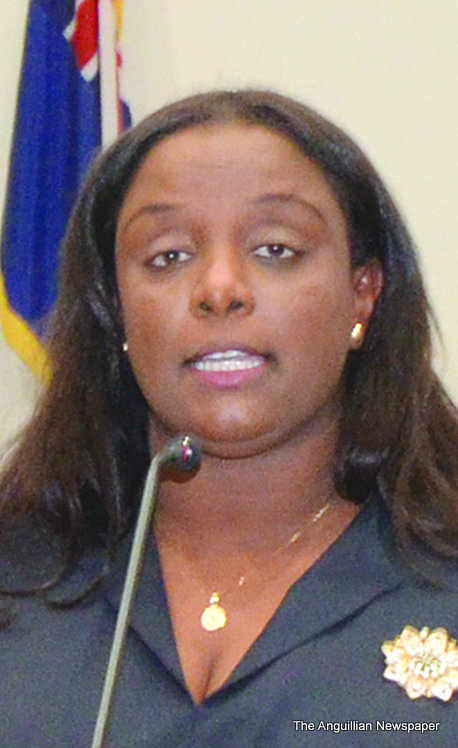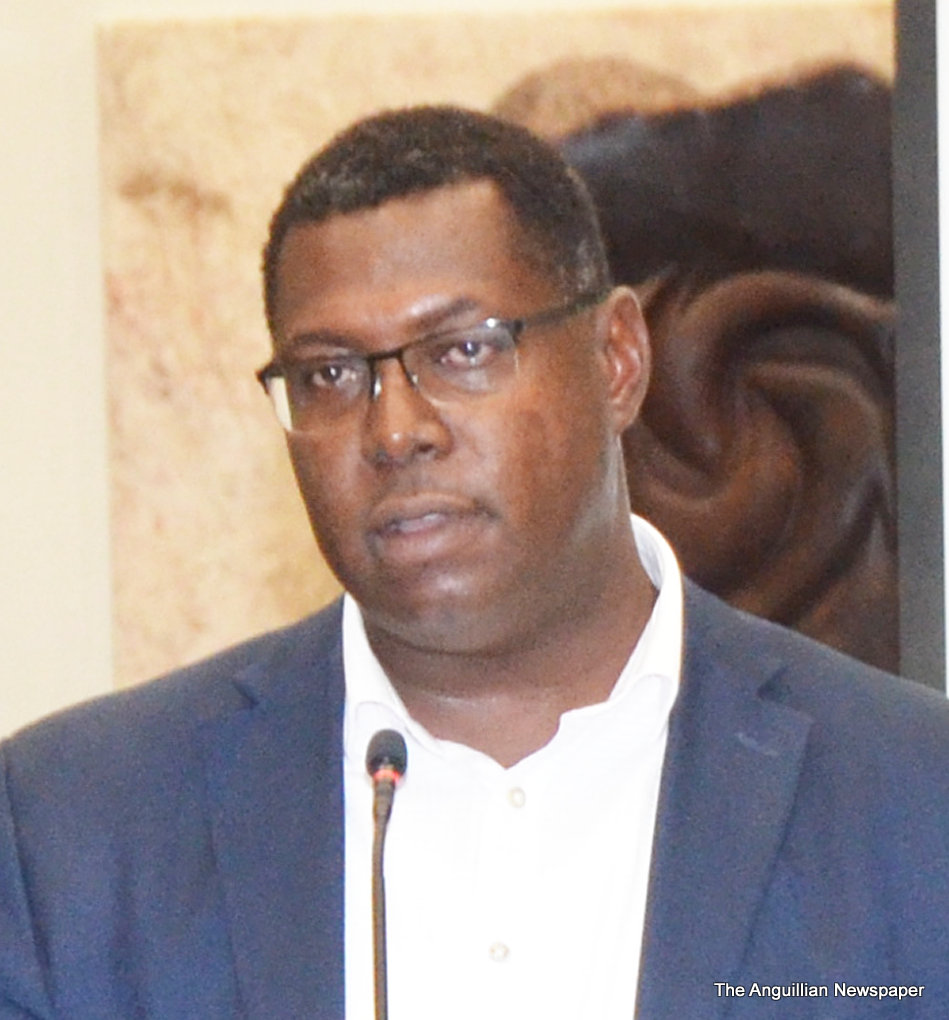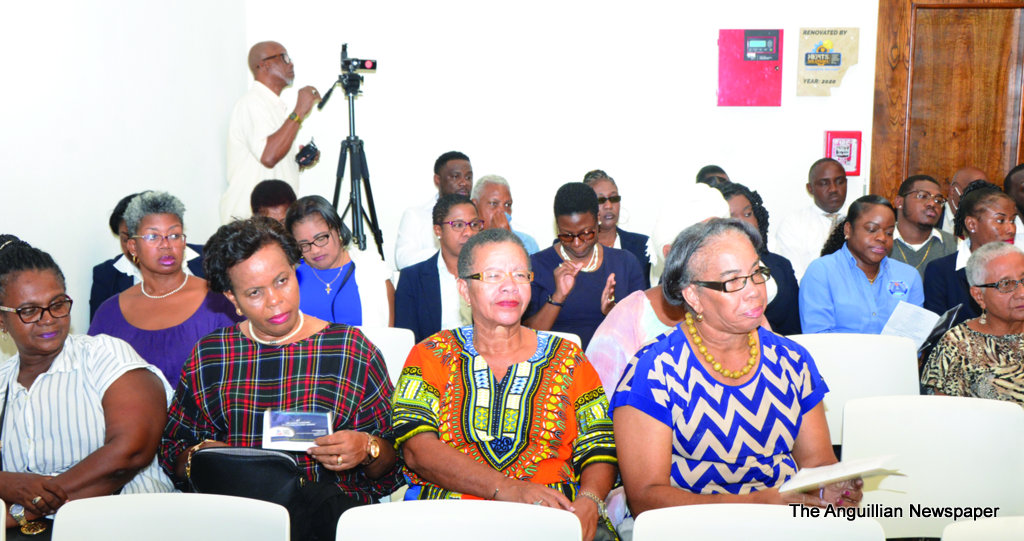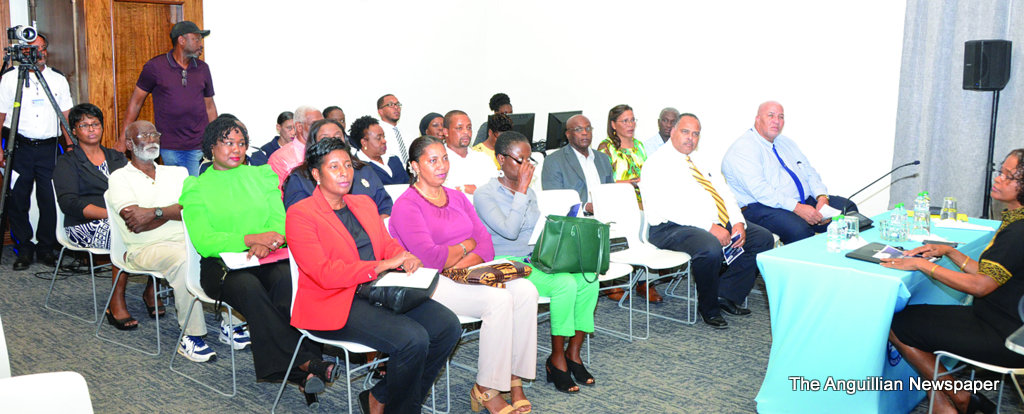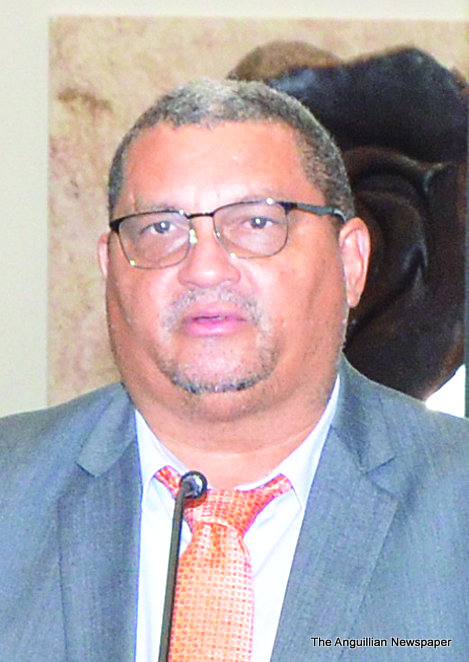The Anguilla Social Security Board recently observed the 40th anniversary of the passage of the Social Security Act. The Act was passed on November 3rd 1980. Its anniversary theme is: “Forty Years After the Act – We’re Secure! That’s a Fact!” As its fifth activity for Social Security Week, which spanned Saturday October 31st to Saturday November 7th, the Social Security Board, in association with the University of the West Indies Open Campus, hosted a distinguished lecture on Thursday night, November 5th.
The lecture was held at the House of Assembly with the theme: “Is Social Security Serving its Purpose? The Role of Social Security in the Global Pandemic and Beyond.” The lecture’s presenter was Anguilla’s Honourable Attorney General, Grenadian native, Mr. Dwight Horsford.
According to UWI Open Campus’ Manager, Dr. Phyllis Fleming-Banks, “Distinguished lectures form part of the regional and national outreach initiative of the University of the West Indies Open Campus.” She noted that because development is a collaborative process, collaboration is critical. She reflected: “When we reached out six years ago, the Anguilla Social Security Board, which is charged with a similar mandate, readily partnered with us to present this annual series.”
She stated that the lectures allowed public speakers, researchers and scholars of various disciplines in academia to share their work and ideas in the interest of national development. And she noted that the UWI saw distinguished lectures as part of its commitment to bringing the UWI to the community.
The Social Security Board’s Director, Mr. Timothy Hodge, observed that the Social Security Act represented what can be considered as the most significant piece of legislation ever passed in Anguilla. The Social Security System’s formation is, to many, the second most important act of our revolutionary leader, James Ronald Webster, and his pioneers, following the 1967 Anguilla Revolution. He noted, “In fact, though these acts are separated by some thirteen years, the Revolution which brought political freedom, and the Social Security System which sought to provide protection for our people are closely intertwined.”
The lecture got underway after Attorney General Horsford was introduced by UWI Open Campus’ Assistant Manager, Mrs. Aunika Webster-Lake. In cataloguing his credentials she lauded AG Horsford as one who has substantial experience in civil, public and constitutional law. She stressed that he served as a member of the Investment Committee of the Social Security Authority of Grenada, and noted that he is an alumnus of UWI, having studied at Cave Hill Campus, Barbados.
After recognising the presence of Government dignitaries and officials of Social Security and UWI Open Campus, Mr. Horsford admitted that while he was not an expert on the lecture topic, he was an expert on having an opinion on the theme: “Is Social Security Serving its Purpose; and The Role of Social Security in the Global Pandemic and Beyond.”
He continued: “It is a signal honour and a particular privilege to speak here this evening. Since I am a graduate of the University of the West Indies, this is a moment of ‘Pelican Pride’. It is a pride that burns ever bright and strong. I observe the strident work of the University of the West Indies as a noble institution in the fulfillment of its mission to educate our people and to uplift our minds while forging a new West Indian civilisation, reflective of our own dreams and aspirations… I thank the Social Security Board and the University of the West Indies Open Campus for affording me this opportunity.”
“Social Security is a human imperative,” he said. “Never before in the policy of human conduct has a concept been more important than that of economic wellbeing and security of the community. Economic security has been an initiative, not just of human conduct, but it has been an instinctive human imperative —throughout the ages. The need to provide for the welfare of others emerged from this basic natural law.
“Historically, as societies evolved, economic and industrial functions became more diverse and complex, resulting in severe and unequal social consequences to the community. The community itself became transformed into the nation. In turn, social and economic crises came about as a result of those tensions that were inherent in that transformation of community to nation.
“The welfare and economic security of families, villages and workers, could no longer be sustained or guaranteed in the context of a community by their own labours and endeavours. Therefore, organisations, friendly societies and trade unions took the place of the community to take responsibility for socio-economic security.”
Mr. Horsford went on: “The social consequences of the emergence of the modern industrialised capitalist societies were not only unequal, but they were rather unpleasant. The responsibility for economic security of the people now fell to the state. The primary obligation of the state is the welfare of the people — not to wage war; not defense of territory; or not to accord wealth for one group in distinction over another.”
“Following the great depression in the United States,” he stated, “with a third of the population of the nation falling into abject poverty, the Social Security Act of 1935 was established. Elsewhere in Europe and the United Kingdom, after the second world war, national insurance schemes also came about with a welfare mandate as the primary function.”
He emphasised how the communities and nations participated in these insurance plans by stating: “These schemes were contributory social insurance plans to afford basic protections to citizens of working age from incidental job loss and loss of income. In the modern post-colonial West Indian context, we see social security/national insurance established and operating in territories and states up and down the Caribbean, and the OECS sub-region.”
In alluding to his findings on his current research, Mr. Horsford pointed out: “It is interesting to realise that whereas social security and national insurance schemes were conceived as a response to the socio-economic needs of the people, Social Security Funds are the people’s money. The Social Security Fund, therefore, is a prudential fund which must be managed with the utmost fidelity to the public beneficiaries — the people.
“The original intent to secure benefits to working people by insuring them against life’s eventualities on the basis of mandatory national insurance was at the heart of its founding. These are the fundamental objects of Social Security.”
Apart from stipulating the mandate to prudently manage Social Security Funds, the AG mentioned that in Anguilla the starting age of contribution to the scheme is quite unique. He noted that age 15 is established, in the Act, when contributions should begin. However, he declared that this age should be increased to at least 18, as age 15 contravenes the civil regulations on the right of the child.
He continued: “It cannot be denied that the COVID-19 global pandemic underscores the inadequacy of the conventional Social Security Fund. Already, since the onslaught of the pandemic, the Social Security Board has paid over millions in unemployment benefits and related relief. In recognition of the new emerging social and economic landscape, in this pandemic context, Government has responded in ways that are in collaboration with Social Security to assist in issuing unemployment relief. This relief itself has recently become an emerging objective of Social Security.
“As a consequence, the Social Security Fund must be sustainable in order to be able to address the urgent necessity for basic economic security during periods of prolonged public health crisis. This, indeed, must be a risk which all social security schemes must seriously consider going forward.”
Mr. Horsford observed that even though one may say that the COVID-19 pandemic will eventually be a thing of the past, he has a view that might run counter to such thoughts: “The rapid growth of human population,” he noted, “in relation to the frightening depletion of food, water and natural resources, coupled with globalisation and climate change, will potentiate the risks of infectious diseases and pestilences of this kind that we are now seeing. Such a public health crisis can well visit us again before long. The Social Security Fund, therefore, cannot be a stagnant Trust in such an environment. Neither can its purposes remain conventional.”
He suggested that the time is now right to enact National Health Insurance within the Social Security Scheme. He emphasised: “Health Insurance benefit should be established as part of the categories of relief in the Social Security Fund. I know that the Premier and Minister of Health has this health insurance initiative under consideration, and I know, too, that many other OECS countries are considering this with a fair measure of seriousness.”
The AG stressed: “Social Security must be sustainable. It is a Trust because it is the people’s money. But if the scheme is engaged in things such as paying for feasibility studies for government projects, or purchasing land to secure government transactions, it would place the Fund in jeopardy of losing its ability to be sustainable.” He then hastened to add: “But, most of all, it will not be serving its purpose by doing these kind of things. I recommend, therefore, that the legislators consider this aspect of the Fund crucially.”
In concluding his lecture, the AG stated: “I commend the Social Security Board on the strides it has made since its inception. This institution is sound, solid and progressing. It has served Anguilla and its people in meeting its founding objectives, over the years, and for this I salute it. Now is the time for a broader mandate to Social Security’s mission, and I hope the legislators have listened.”
– Staff Reporter, James R. Harrigan



